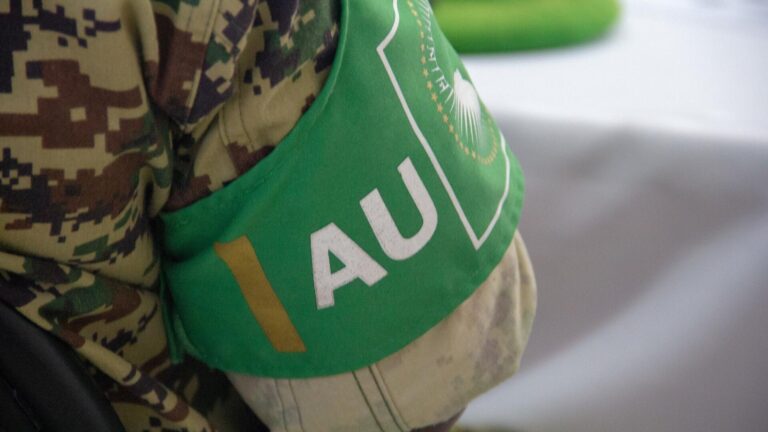The African Union Support and Stabilization Mission in Somalia (AUSSOM) is poised to set into motion on January 1st following its endorsement by a UN Security Council vote last week.
AUSSOM replaces the African Union Transition Mission in Somalia (ATMIS), marking a further step in transitioning national security responsibilities to Somalia’s own national security forces.
In essence, AUSSOM will be a new peacekeeping and stabilisation mission which is intended as an upgrade on previous operations namely the African Union Transition Mission in Somalia (ATMIS) and the African Union Mission in Somalia (AMISOM).
The composition of AUSSOM will be a reflection of the shifting geopolitical situation in the Horn of Africa as Somalia enters new alliances.
Ethiopia which has been a consistent troop-contributor to AMISOM since 2007 and ATMIS in latter years has not been named as one of the four nations whose troops will make up AUSSOM. Ethiopia’s East African neighbours Kenya, Uganda, Djibouti and North African country Egypt are the main troop contributors.
Ethiopia’s exclusion from AUSSOM comes amid tensions with Somalia over a controversial deal with breakaway Somaliland which would provide the landlocked country access to a Red Sea port. The government in Mogadishu views this deal as an affront to its sovereignty and responded by signing a defense pact with Egypt earlier this year which saw the deployment of Egyptian troops and shipment of military hardware to Somalia.
Although a deal was reached in Ankara, Turkey brokered by President Recip Tayep Erdogan to end the feud, Somalia had made it clear that Ethiopian troops will not be cleared to be part of the new AUSSOM which begins operations in the new year 2025.
Although the authorities in Mogadishu did not openly fault Ethiopia’s peacekeeping role in Somalia, they had made cryptic references about the presence of Ethiopian troops ”complicating” operations against al-Shabaab.
Somali officials at the UN said the composition of AUSSOM stems from bilateral agreements Somalia had signed with some of its neighbours including Egypt and excluding Ethiopia.
According to the unnamed official, troop contributing countries ”have shown remarkable solidarity, pledging to maintain our necessary force of 11,000 troops for AUSSOM”.
AUSSOM’s task will not radically differ from its predecessors in that its main remit is pursuing al-Shabaab militants who have been carrying out an Islamist insurgency in the country since 2007. AUSSOM will be providing security cover for the federal government of Somalia and degrading al-Shabaab and their affiliates with the Islamic State in Iraq and the Levant (ISIL), also known as Da’esh.
Although the militants still retain some capability to strike targets in Somalia including bombings in the capital Mogadishu, the previous AU missions under AMISOM and ATMIS have made progress in degrading their efficacy from a fighting force of over 18,000 fighters, according to a 2022 estimate. Although the regularity of al-Shabaab bombings in Mogadishu and surrounding areas has waned, the group still has a capability to inflict harm which previous AU peacekeeping missions had to contend with.
The role of ATMIS had been dual namely helping to neutralise pockets of al-Shabaab on the one hand and building the capacity of the depleted Somali security forces to effective, functioning entities capable of assuming greater responsibility to protect Somalia on the other. AUSSOM’s role is to reinforce this progressive transition turning the Somali military into a full fledged security institution while also acting as a leading light in the war against the militants.
Last week’s UNSC vote authorised African Union member states to continue to deploy up to 12,626 uniformed personnel, including 1,040 police personnel, to AUSSOM until 30 June 2025 and to complete by this date the realignment of all African Union troops from ATMIS to AUSSOM.
Meanwhile Ethiopia’s envoy to the UN warned of serious security implications for the inclusion of new players in the regional effort to stabilise Somalia.
Tesfaye Yilma Sabo told the UNSC that peacekeeping operations in Somalia had always been a shared burden for countries in the region spurred on by a collective desire for regional peace and stability.
Tesfaye said the new players, notably Egypt and Eritrea are ”extra-regional actors that have no constructive role in the region and in fighting terrorism in Somalia and should be advised to abandon their reckless pursuit”.
MG/as/APA


